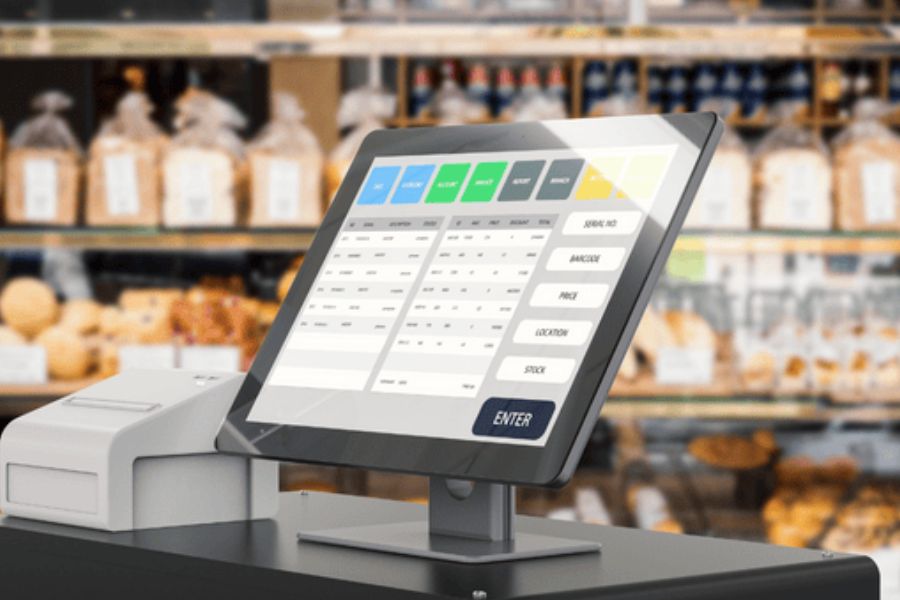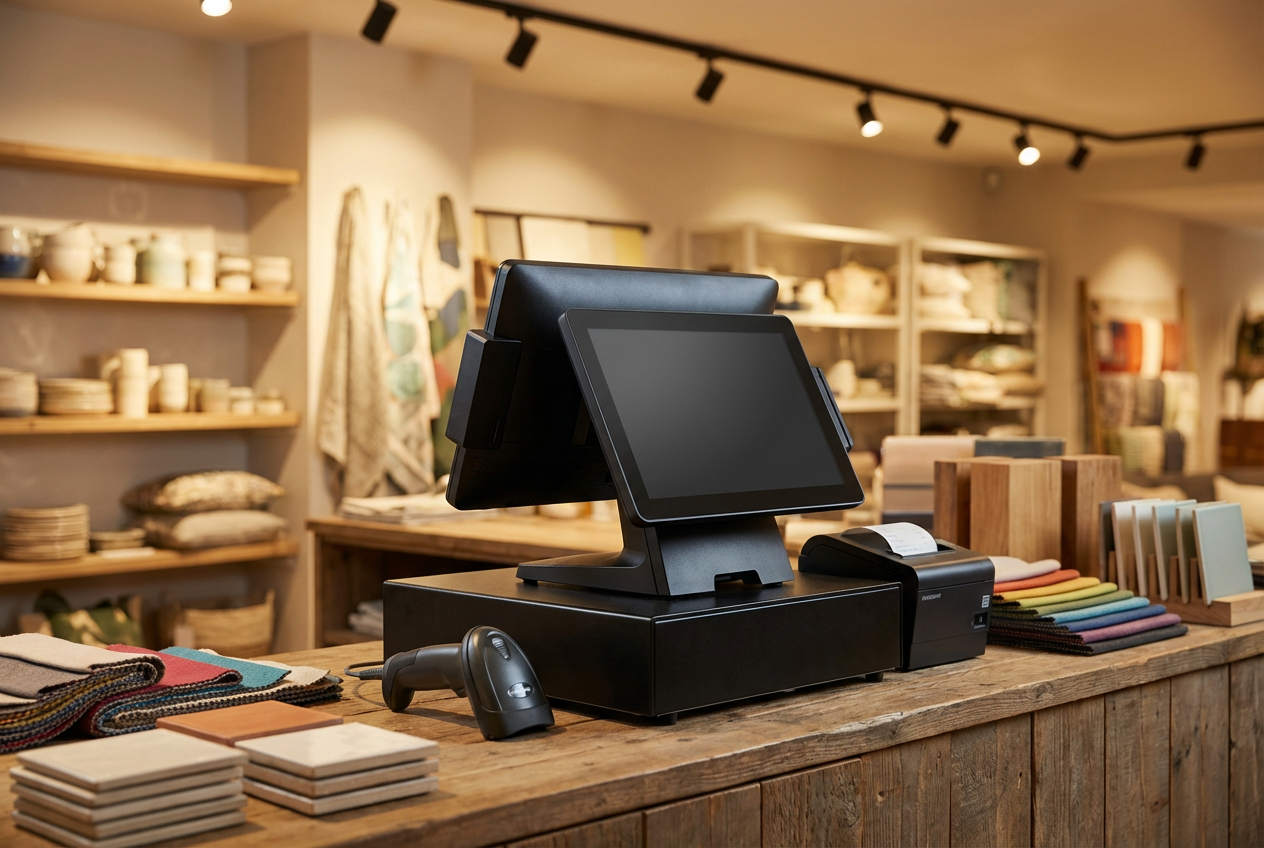The retail industry in 2026 is transforming faster than ever, driven by evolving consumer behaviors, omnichannel demands, and rapid technological advancements. At the core of this evolution is the Point of Sale (POS) system — no longer just a payment terminal, but a powerful tool that integrates inventory, customer data, loyalty programs, and analytics.
In this article, we’ll explore the top retail POS trends for 2026, backed by statistics, and how businesses can adapt to capitalize on these changes.
Cloud-Based POS Systems Dominate the Market
One of the most significant shifts in POS is the move to the cloud. In 2025, more than 72% of retailers use cloud-based POS systems, allowing for real-time updates, remote access, and seamless integrations with eCommerce platforms.
Key benefits:
- Centralized data from all sales channels
- Easier software updates
- Scalability for growing businesses
Popular examples: Shopify POS, ConnectPOS, Square POS, Vend
Omnichannel POS Becomes Non-Negotiable
Omnichannel retailing is no longer a luxury — it’s expected. Customers want consistent experiences across online, in-store, and mobile touchpoints. POS systems that sync data across all platforms in real time are essential.
Stat: 68% of consumers expect store associates to have access to their online order history.
Retailers with unified commerce platforms see a 9.5% increase in revenue on average.
ConnectPOS is a notable leader in omnichannel POS, offering real-time synchronization between physical and digital stores, especially for Shopify, Magento, and WooCommerce users.
AI-Powered Insights and Smart Analytics
POS systems in 2026 don’t just record sales — they analyze them. With AI and machine learning, retailers can now:
- Forecast demand
- Identify high-performing products
- Personalize promotions
Stat: Over 50% of modern POS platforms now include some form of built-in predictive analytics or AI-driven features.
►►► Optimal solution set for businesses: Multi store POS, Next-gen POS, Inventory Management Software (MSI), Self Service, Automation, Backorders
Mobile POS Adoption on the Rise
mPOS (mobile POS) solutions are gaining momentum, especially in fashion, food, and popup retail. Employees can assist customers and process payments from anywhere in-store, reducing wait times and improving the experience.
Stat: The mobile POS market is projected to reach $55 billion by the end of 2025.
In the U.S., over 85% of mid-size retailers are expected to adopt mPOS by Q4 2025.
Self-Checkout and Self-Service Kiosks Grow Rapidly
To reduce staffing needs and enhance customer control, self-service kiosks are growing fast in grocery, electronics, and QSR (quick service restaurant) sectors.
Key Benefits:
- Shorter lines and wait times
- Upsell opportunities through screen prompts
- Reduced operating costs
Stat: 57% of consumers say they prefer self-checkout options, and 35% of retailers plan to increase investment in kiosks in 2025.
Increased Focus on Security and Compliance
With POS systems handling sensitive customer data, cybersecurity is critical. New compliance requirements like PCI DSS 4.0 and data privacy regulations are shaping how POS providers handle transactions.
Top priorities for 2026:
- End-to-end encryption (E2EE)
- Tokenization of payment data
- Two-factor authentication for back-end systems
Sustainability and Paperless Receipts
Environmental concerns are pushing more retailers toward digital receipts and eco-friendly POS hardware. Customers can opt to receive receipts via SMS or email, and businesses can reduce paper usage and clutter.
Stat: 62% of customers prefer digital receipts over printed ones in 2025.
Integration with Loyalty, CRM & Inventory
A modern POS system must act as a retail command center, integrating:
- CRM tools to track customer behavior
- Loyalty programs with automated rewards
- Inventory management for real-time stock updates
ConnectPOS is well-known for robust integration options, allowing syncing with leading eCommerce platforms and ERP systems for total retail control.
Subscription-Based POS Pricing
More POS vendors are moving away from large upfront costs and adopting SaaS pricing models, where businesses pay monthly or annually for software access.
Stat: 80% of POS providers now offer subscription-based pricing with tiers starting as low as $29/month.
This shift improves affordability for small businesses and encourages regular software updates and support.
Customization & Industry-Specific POS Solutions
In 2026, retailers seek more than generic tools. They want POS systems tailored to their industry — whether that’s food service, fashion, pharmacy, or electronics.
Industry-specific POS features include:
- Restaurant menu management
- Apparel sizing & color matrix
- Barcode integration for pharmacies
- Split payments and tipping in salons
ConnectPOS: A Leading Player in Retail POS for 2026
ConnectPOS has emerged as a top choice for omnichannel retailers in 2026. With support for Shopify POS, Magento POS, WooCommerce POS, and more, it offers:
- Real-time inventory sync across channels
- Customizable receipt templates
- Integrated loyalty programs
- Mobile POS and self-checkout compatibility
- Powerful analytics and AI reports
Contact ConnectPOS
Website: www.connectpos.com
Email: [email protected]
Regions served: Global, with strong presence in the U.S., Southeast Asia, and Europe
Retail POS Statistics for 2026 (Quick Highlights)
| Statistic | Value |
|---|---|
| % of cloud-based POS adoption | 72% |
| % of consumers expecting unified commerce | 68% |
| % increase in revenue from unified commerce | 9.5% |
| Market size of mobile POS in 2025 | $55B |
| % of retailers investing in kiosks | 35% |
| % of POS vendors offering SaaS pricing | 80% |
Final Thoughts
Retailers in 2025 are no longer asking if they should upgrade their POS system — but how. With cloud integration, AI, mobile functionality, and omnichannel capabilities, POS systems are becoming a strategic asset rather than a simple payment processor.
By investing in forward-looking tools like ConnectPOS, retailers can future-proof their operations, delight customers, and stay ahead in a highly competitive landscape.
FAQ – Retail POS Trends 2026
Q1: What is the most important POS trend in 2026?
A: Omnichannel capability — syncing online and offline data — is considered the most critical feature for customer experience and operational efficiency.
Q2: Is mobile POS suitable for small retailers?
A: Yes, mPOS offers flexibility and affordability, making it ideal for small businesses, pop-up shops, and events.
Q3: How much does a modern POS system cost in 2026?
A: Prices range from $0 (free versions) to $100+/month for subscriptions, plus hardware and payment processing fees.
Q4: Which industries benefit most from self-checkout kiosks?
A: Grocery, electronics, fast food, and convenience stores see the highest ROI from self-service solutions.
Q5: Why choose ConnectPOS in 2026?
A: It provides a powerful omnichannel POS solution with deep integrations, mobile features, and excellent global support.
►►► Optimal solution set for businesses: Shopify POS, Magento POS, BigCommerce POS, WooCommerce POS, NetSuite POS, E-Commerce POS



